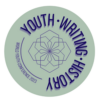Saturday, 4th November
Today, the second day of the World Youth Conference has taken place. It was a day of education and discussion, as the young delegates, militants and activists got to know each other and their struggles better. Therefore the day was created differently then the first day; during the day 12 workshops with smaller groups in 2 blocks were held. Within the workshops the overall focus was on the various problems that young people face on multiple front lines – from militarism to sexism, from the ecological collapse to migration.
The day has shown that a lot of the causes and and effects of the problems of the youth are shared across the different geographies of our delegates. No matter if in Abya Yala, Asia, the Middle East or Europe, everywhere on the world the youth is being oppressed, rubbed and used for the interests of the nation states – sometimes in a mainly physical way, sometimes in an ideological way. But within the workshops it got also clear that the oppressions that have been discussed for example the using of the youth as labour force in China, the military service in Turkey or the uncountable feminicides in Europe, that they all can’t be separated from each other– but that they are having the same root and therefore also need to be fought together.
In the workshop on youth and ecology the importance of an internationalist struggle against the colonial system got visible quite fast as there was a participation of indigenous youth from Abya Yala, from Mali and Kurdistan all sharing what Aline from the Guarani Kaiowa people in Brasilia was saying: “When the Europeans stole our land the climate crisis started. They destroyed the forest and rivers, stole our land and lives.”
But not only in this workshop indigenous groups and oppressed folks were present and sharing how they are fighting the colonialist system: The delegates from Consejo Regional Indigena del Cauca (CRIC) of the Mapuche people of whom a representative was also present at the conference explained the context of the struggle on their territory against the Chilean state. They explained their philosophy of “El Buen Vivir” as a dialectic relationship: “Life is what we see and what we don’t see, all in harmony with nature.”
The importance of self-defense has been discussed in different workshops and it has been seen that sometimes a philosophy is a kind of self-defense, sometimes education – as the Colombian Communist Party was explaining that this is their form of resisting against the attacks on the youth.
In the workshop on the middle east as the center of the third world war, the topics of genocide and legitimate self-defense were also discussed. The conditions of Imperialism are, similar to those in Abya Yala, ones of pillage, displacement, rape and murder of peoples as well as the destruction of their immaterial life, their culture and traditions.
A delegate from Balochistan raised awareness about their oppression by the Pakistani state – as well as more than 20 years of resistance history, of armed uprisings and popular revolts, which most recently played a part in the “Jin, Jiyan, Azadi” Revolution in the Middle East. Whose impacts were, in another workshop on Womens Liberation, described as a “revolution of historic scale, starting to unbuild the patriarchal system which thousands of years ago was created in the Middle East”. In a seminar after the workshops a friend from Kurdistan via Live stream was explaining the women liberation ideology of the kurdish freedom movement more detailed.
As one of the main points of the women liberation ideology is culture and arts, in the evening an emphasis is again put on culture – the main hall of the conference is crowed with internationalists from all over the world. They are holding each other’s hands as they dance in a big circle. There is a band from the Occitane region playing a traditional Bask dance, after this the Mapuche People are showing their dances. Before everyone is dancing govend together, a traditional kurdish dance, the internationalists were stating: “We like to share who we are. Revolutionary culture is the pillar of our movement.”
From theoretical discussions to revolutionary culture the second day of the World Youth Conference was the next step towards an internationalist fight of the youth. As Alina from Brasil was giving a promise in her mother language that they will continue fighting and protecting their territory until the end, this day was a clear promise from all the internationalists to from now on walk into the same direction.
To embark on the finding of common ground and future youth internationalism the 3rd and last day, Sunday, will give a perspective on the path ahead, with two panels that will lead to the discussion of a final declaration.
